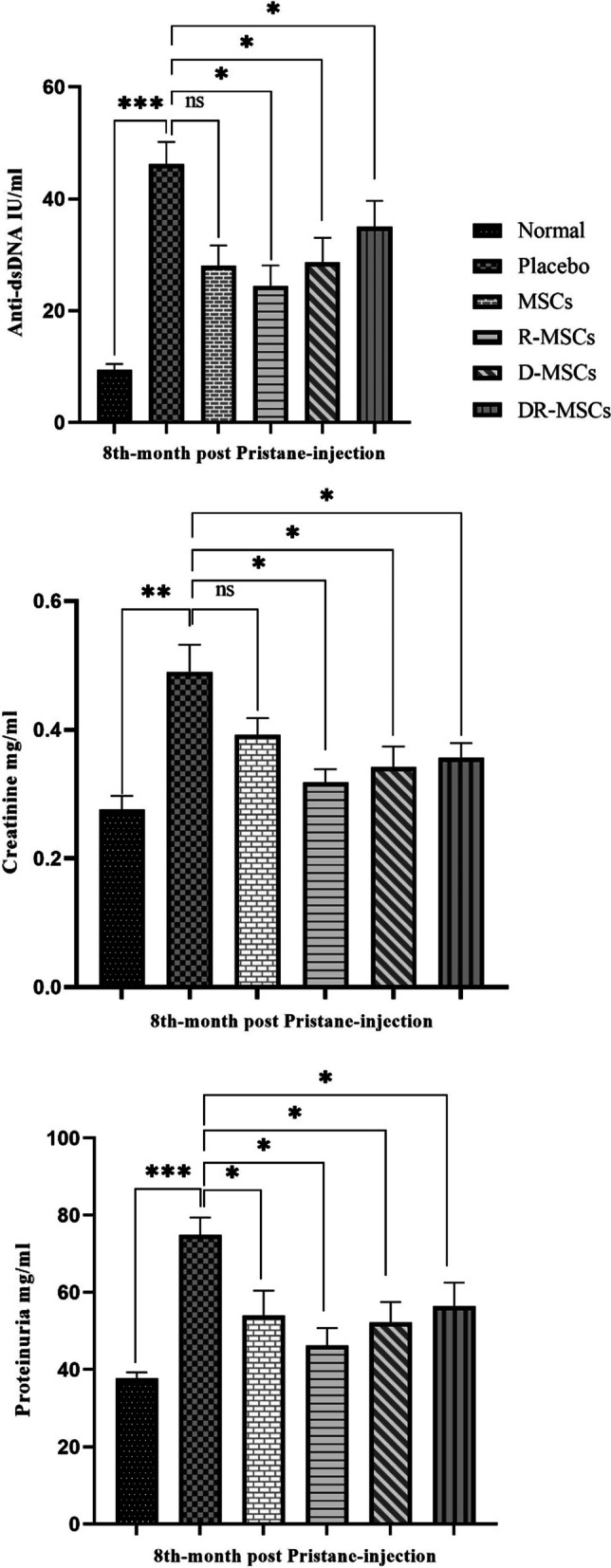Fig. 3.

Probiotic coincubation alters MSC immunoregulatory capacity on clinical biomarkers. Levels of anti-dsDNA antibodies and creatinine in sera and urine protein in the P–C group were significantly higher than those in the P–C group. Compared to the P–c group, N-MSCs, R-MSCs, and D-MSCs groups revealed a marked reduction in anti-dsDNA antibodies; DR-MSCs treatment did not induce a similar effect. Moreover, urine protein was statistically significantly lower in mice treated with naïve MSCs or coincubated MSCs compared with the PBS-treated PIL mice model. Although the serum creatinine level of mice treated with naïve MSCs was not significantly different from that in the P–C group, the mean serum creatinine concentration from mice treated with coincubated MSCs was significantly lower than that in the P–C group. N–C: Negative Control (Healthy mice treated with PBS); P–C: Positive Control (Pristane-immunized mice treated with PBS); N-MSCs (Naïve MSCs without any interventions); R-MSCs: MSCs exposed to lactobacillus rhamnosus; D-MSCs: MSCs exposed to lactobacillus delbrueckii; DR-MSCs: MSCs exposed to a mixture of lactobacillus rhamnosus and delbrueckii. Data were presented as Mean ± Standard Error of the Mean (SEM). P values of ≤ 0.05 were considered significant. (*P ≤ 0.05, **P ≤ 0.01, ***P ≤ 0.001)
